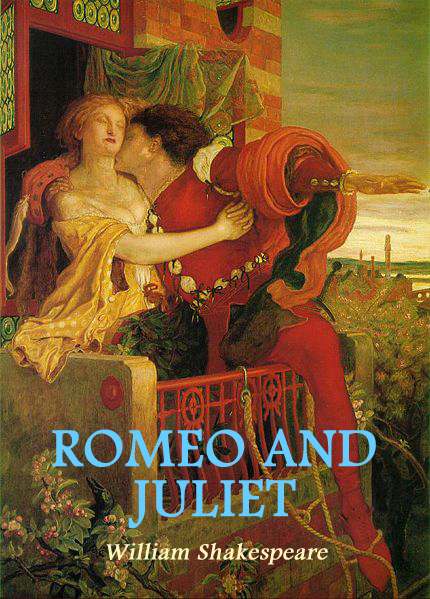I wrote this recently for something else, but liked it, and it turns out I can use it here, so what the hey. It’s something of a companion piece to this.
_____________________
 Juliet, maybe the single most famous and influential romantic heroine in all of literary history, is 14. She’s 14! Today, that would mean she’d be in 8th grade. She’s younger than Bella in Twilight. She’s younger than Katniss in The Hunger Games. If you’re reading this for high school, she’s younger than you. And yet, she finds true love and marries and defies her father and has a series of improbable, desperate, and ultimately, tragic adventures and generally packs enough event into her 14 years to wear out folks two, or three, or four times her age.
Juliet, maybe the single most famous and influential romantic heroine in all of literary history, is 14. She’s 14! Today, that would mean she’d be in 8th grade. She’s younger than Bella in Twilight. She’s younger than Katniss in The Hunger Games. If you’re reading this for high school, she’s younger than you. And yet, she finds true love and marries and defies her father and has a series of improbable, desperate, and ultimately, tragic adventures and generally packs enough event into her 14 years to wear out folks two, or three, or four times her age.
You may think that Juliet is so young because people in the past got married earlier. This isn’t exactly right, though. Women in Shakespeare’s London generally married in their mid-20s. It’s true that Romeo and Juliet is set in Italy, and that Lady and especially Lord Capulet are eager to wed their 14-year-old daughter to a wealthy guy named Paris. But Shakespeare’s audience would probably have found that as unusual, and perhaps as distasteful, as we do.
Juliet may be young, but that doesn’t mean she’s innocent. On the contrary, the first time she meets Romeo, their flirty banter is wicked enough to light dry tinder and make small woodland creatures fan themselves. Romeo tries to get her to agree to kiss him by pointing out that even saints have lips. To which Juliet replies, “Ay, pilgrim, lips that they must use in pray’r.” ( I.V) She’s teasing him — and he gets his kiss, or two.
The conflict in the play is, famously, because Romeo and Juliet are from feuding families, and so they can’t declare their love openly. But the tragedy also comes from Juliet’s character, and from the way that she’s a grown-up in some ways and not in others. Sometimes, she seems careful, and even wise. She demands that Romeo pledge to marry her or “cease thy suit and leave me to my grief.” (II. II) That seems like a precaution even her mom would approve of.
On the other hand, though, there’s the scene in Juliet’s room after she and Romeo have secretly married. When Romeo gets up in the morning to leave the room, Juliet tries to convince him, and herself, that “Yond light is not daylight,” and that he’s still got plenty of time. (III.V.) Since Romeo is under threat of death for murdering Juliet’s cousin, her effort to detain him is a really bad idea, to put it mildly. She comes across as a child wheedling to get her way — until Romeo reminds her that he might get killed. At which point she suddenly reverses course completely, and bustles him out of the room.
In the end though, it’s not Juliet’s sometimes youthful temperament that undoes her. Rather, it’s her youthful powerlessness. As a 14 year old, and especially as a 14-year-old woman, her ability to act, or even to move about the city, are very restricted. For example, when she tells her father she doesn’t want to marry Paris (because she’s already secretly married to Romeo), Lord Capulet completely freaks out. He shouts insults at her (“”green-sickness carrion…!” “baggage!” “tallow-face!” “disobedient wretch!”) and tells her he’ll drag her to the altar himself. (III.V.) When she asks her Nurse for help, the servant tells her to just go ahead and marry Paris, since Romeo is exiled and can’t protest. And when she goes to Friar Lawrence, who married her and Romeo, he comes up with a preposterous and risky scheme which ends, predictably, with the stage groaning under piles of bodies (though Friar Lawrence himself comes out of things all right).
Juliet not only dies young, then. She dies in a lot of ways because she’s young, and because the adults she relies on are idiots. She’s funny, passionate , dedicated, brave, and even wise. She would have made a much better grown-up than her dictatorial father, or her air-brained Nurse, or the incompetently crafty Friar Laurence. But we never get to see old Juliet. Which is the tragedy of the play.
